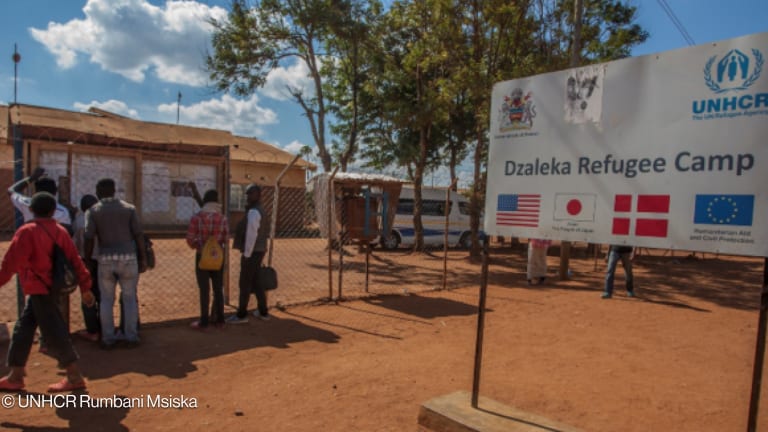
While infectious diseases — measles, flu, polio, tuberculosis, severe acute respiratory syndrome, malaria, Ebola, HIV/AIDS, COVID-19 — have swept the globe, with the lowest-income communities bearing the brunt of suffering and death, there is one other pandemic that has surpassed and outlasted them all: sexual and gender-based violence, especially domestic violence.
The magnitude of violence against women and girls is staggering. Globally, 35% of women have experienced physical or sexual intimate partner violence, and more than 1 billion women lack legal protection from sexual violence by an intimate partner or family member. Worldwide, 243 million women and girls ages 15-49 have been subjected to sexual or physical violence by an intimate partner in the previous 12 months. Over 100 women are killed by a family member every day.
Researchers say that a conservative estimate of the welfare costs of intimate partner violence, or IPV, is $4.4 trillion, or 5.2% of global gross domestic product. IPV costs us significantly more than the societal toll of deaths from homicides or civil war. These costs do not begin to convey the short- and long-term damage to the mental and physical health of survivors.
Women subjected to domestic violence and sexual assault experience more miscarriages, abortions, mental illness, attempted suicide, and exposure to HIV/AIDS. Witnessing or experiencing violence as a child causes long-term mental health problems in both boys and girls and is a significant predictor of future violence: Boys are more likely to become violent abusers and girls to be victimized in adulthood.
Even where domestic violence is criminalized, few cases are reported and fewer still reach a court of law. Survivors often fear that reporting will put them at greater risk or deprive the family of a breadwinner. Where domestic violence is culturally embedded and ubiquitous, local police officers are likely to consider violent crimes against women and children a “family matter.” Additionally, the lack of safe spaces, shelters, and other support services makes it often impossible for women to be protected from further abuse.
The effect of COVID-19 on gender-based violence
This op-ed discusses the need to build an infrastructure for the emergency response to gender-based violence. The author, a public health social worker, outlines the critical steps to get there.
COVID-19’s lockdowns, school closings, and joblessness have poured gas on an already blazing fire. Reports of domestic violence have increased by 40% or more in some countries. “Building back better” from the COVID-19 pandemic must include the prioritization of “building back safer” to confront the pandemic of gender-based violence that causes suffering, disability, injury, or death for a third of the women on the planet.
Building back safer means that national governments, donor nations, and international development institutions must do now what they have not done in the past: commit to measurable reductions in sexual assault, murder, and battery of women and children. Criminal justice institutions should prosecute perpetrators and deploy a full complement of protection strategies, including restraining orders, home checks, and access to family shelters for women and children in immediate danger.
Addressing IPV requires a holistic, multisectoral approach. Health professionals must work with police officers, lawyers, and the judiciary, while civil society organizations must work in partnership with government agencies to support the survivors at the center of the process. Civil society groups can mobilize the community against IPV, which will encourage local authorities to act on it.
Emergency response and building back from COVID-19 globally will be a monumental public health endeavor, with more than 1 million people dead from COVID-19 and many millions more out of work. But for half the world’s population — women and girls — access to effective justice services, including accountability for perpetrators, is an essential element of public health.
Health workers are not only responding to COVID-19 patients, but also tending to the wounds of millions of women and children from IPV. But only criminal justice officials have the sovereign duty of holding perpetrators to account. In many places, they are not exercising it now and will not be able to do so in the future if police, prosecutors, courts, and social welfare agencies are not properly resourced and held to account for just outcomes.
Best practices
Opinion: Tackling the rise of violence against women during COVID-19
As COVID-19 takes hold in Cox’s Bazar, women and girls face a shadow pandemic: domestic violence. This op-ed discusses what can be done to support women and girls.
There are promising models in communities around the world. In Kenya, for example, Physicians for Human Rights’ program on sexual violence in conflict zones has applied a multisectoral approach to train doctors, clinical officers, nurses, psychotrauma counselors, police officers, lawyers, and judges to strengthen the way they capture and preserve forensic evidence to bolster investigations and enhance prosecutions to increase the likelihood that a survivor will obtain meaningful access to justice.
By working with medical, law enforcement, and legal partners, PHR seeks to emphasize trauma-informed, survivor-centered techniques for gathering comprehensive and compelling evidence and helping survivors obtain justice and accountability.
International Justice Mission’s government partners have achieved hundreds of convictions for sexual assault in Bolivia and Guatemala, while also establishing child-friendly investigation and courtroom protocols. IJM’s pilot effort in northern Uganda to help local justice officials prosecute cases of IPV resulted in convictions for offenders and restitution for survivors. When given options and support, survivors brought cases to the police, and police officers were more than willing to act on them.
In criminal justice, like public health, struggling and underfunded institutions in impoverished countries are not likely to reform themselves. It takes investment, political will, accountability, and partnership by national governments, foreign donors, and civil society — all of which are crucial to beating back viral pandemics.
The same investment and collaboration — but this time for faltering criminal justice systems — is required to take on the world’s most durable pandemic: violence against women and children.
For more information on IJM’s work to protect women and children from violence, click here.





